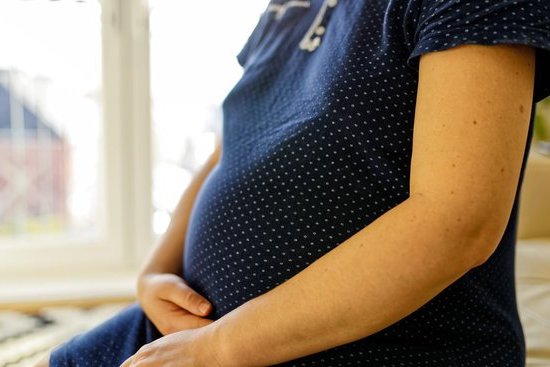Why should concern about good nutrition begin before pregnancy? The importance of pre-pregnancy nutrition cannot be overstated, as it plays a crucial role in the health of both the mother and the developing fetus. Proper nutrition before conception can have a significant impact on fertility, conception, and the long-term health of the child.
Nutrition before pregnancy is key to maternal health, as it can help prevent complications such as gestational diabetes, pre-eclampsia, and anemia. It also sets the stage for a healthier pregnancy and birth. Additionally, adequate pre-pregnancy nutrition can reduce the risk of birth defects and developmental problems in the fetus. As such, understanding the impact of good nutrition before pregnancy is essential for all individuals considering parenthood.
In this article, we will explore why good nutrition should be a priority before pregnancy by delving into its impact on maternal health, fertility and conception, fetal development, and the long-term health of the child. We will also discuss common deficiencies in pre-pregnancy nutrition and provide tips for achieving optimal nutritional status before conception.
By better understanding the critical role of pre-pregnancy nutrition, individuals can make informed choices that support their own health and that of their future child.
The Impact of Pre-Pregnancy Nutrition on Maternal Health
Good nutrition before pregnancy is crucial for the overall health and well-being of the mother-to-be. The period before conception is an important time for women to focus on their nutritional intake in order to prepare their bodies for the demands of pregnancy and childbirth. This section will explore the impact of pre-pregnancy nutrition on maternal health, highlighting the various ways in which a balanced diet can benefit women during this crucial stage of life.
Benefits of Good Pre-Pregnancy Nutrition
Eating a nutritious diet before getting pregnant can help women maintain a healthy weight, reduce the risk of gestational diabetes, decrease the likelihood of developing preeclampsia, and lower the chances of experiencing complications during childbirth. A balanced diet rich in essential nutrients such as folic acid, iron, calcium, and omega-3 fatty acids can also support overall reproductive health, hormone balance, and menstrual regularity.
The Role of Nutrient Deficiencies
On the other hand, inadequate pre-pregnancy nutrition can lead to deficiencies that may affect maternal health. For example, a lack of folate (folic acid) before conception has been linked to an increased risk of neural tube defects in newborns. Iron deficiency can result in anemia, which may pose risks during pregnancy.
Addressing these nutrient deficiencies before getting pregnant is essential for preventing potential health issues and ensuring a smooth transition into pregnancy. This is why concern about good nutrition should begin before pregnancy – to ensure optimal maternal health and well-being.
The Role of Nutrition in Fertility and Conception
Good nutrition is essential for overall health and well-being, but it becomes particularly crucial when considering fertility and conception. It is important to understand how the nutrients consumed before pregnancy can impact fertility and increase the chances of conception. This section will delve into the role of nutrition in fertility and conception, shedding light on why good nutrition should be a concern even before pregnancy.
The Importance of Nutrients for Fertility
Nutrition plays a significant role in maintaining reproductive health, which directly impacts fertility. Certain nutrients, such as folic acid, iron, vitamin D, and omega-3 fatty acids, have been linked to improved fertility in both men and women.
For women, having these essential nutrients in their diet can regulate ovulation and promote healthy hormonal balance, while for men, proper nutrition can enhance sperm quality and motility. Therefore, consuming a well-balanced diet rich in these key nutrients can aid in optimizing fertility.
The Impact of Nutrition on Conception
Nutrition also affects the ability to conceive and sustain a healthy pregnancy. Research has shown that poor pre-pregnancy nutrition can lead to irregular menstrual cycles, anovulation (lack of ovulation), and other reproductive issues that may hinder conception. On the other hand, maintaining proper nutritional status can enhance cervical mucus production and create a favorable environment for implantation. By focusing on good nutrition before pregnancy, couples can potentially improve their chances of successfully conceiving.
Addressing Nutritional Concerns Before Pregnancy
Understanding the impact of nutrition on fertility and conception highlights the importance of addressing any nutritional deficiencies or imbalances before attempting to conceive. Consulting with a healthcare provider or a registered dietitian can help individuals identify any specific nutritional needs based on their unique health conditions and lifestyle factors. By making necessary dietary adjustments or taking supplements as recommended by professionals, individuals can prepare their bodies for pregnancy by ensuring optimal nutritional status.
How Pre-Pregnancy Nutrition Affects the Development of the Fetus
Good nutrition before pregnancy is crucial for the healthy development of the fetus. The nutrients that a woman consumes in the months leading up to conception play a significant role in ensuring that the baby develops properly in the womb. Here are some ways that pre-pregnancy nutrition affects the development of the fetus:
- Formation of vital organs: Nutrients like folic acid, iron, and calcium are essential for the formation of vital organs such as the brain, heart, and bones in the developing fetus. Without these nutrients, there is an increased risk of birth defects and developmental issues.
- Growth and weight gain: A mother’s diet before pregnancy can impact the growth and weight gain of the fetus. Poor nutrition can lead to low birth weight, which is associated with an increased risk of health complications for the baby both at birth and later in life.
- Immune system development: Nutrients like vitamin D and zinc are important for the development of a strong immune system in the fetus. A deficiency in these nutrients during pre-pregnancy could compromise the baby’s immune function.
It is clear that good nutrition before pregnancy sets the stage for a healthy and thriving fetus. By prioritizing optimal nutrition before conceiving, women can significantly influence their baby’s developmental outcomes.
There are many reasons why concern about good nutrition should begin before pregnancy. By focusing on preconception health and wellness, women can help ensure that their bodies are primed for a healthy pregnancy and that their babies have every chance to develop properly from day one onward. It is never too early to start thinking about pre-pregnancy nutrition, as it lays a strong foundation for both maternal health and fetal development throughout pregnancy.
The Link Between Pre-Pregnancy Nutrition and the Long-Term Health of the Child
It is essential to focus on good nutrition before pregnancy because it has a significant impact on the long-term health of the child. The nutrients that a woman consumes before conception can influence the development of the fetus and even have lasting effects on the child’s health into adulthood. Here are some key points to consider about the link between pre-pregnancy nutrition and the long-term health of the child:
- Nutritional status before pregnancy can affect gene expression in the fetus, potentially influencing the risk of chronic diseases later in life.
- A mother’s pre-pregnancy diet can impact the child’s risk of obesity, diabetes, cardiovascular disease, and other health conditions as they grow up.
- Proper nutrition before pregnancy can help prevent developmental issues and contribute to overall better health outcomes for the child in both childhood and adulthood.
In order to prioritize good nutrition before pregnancy, women should focus on consuming a well-balanced diet that includes essential nutrients such as folic acid, iron, calcium, and vitamins. Additionally, maintaining a healthy weight through proper nutrition and regular exercise can also contribute to positive long-term health outcomes for both the mother and child. With proper pre-pregnancy nutrition, women can set their children up for a healthier future from the very beginning.
Common Deficiencies in Pre-Pregnancy Nutrition and How to Address Them
When it comes to pre-pregnancy nutrition, there are several common deficiencies that women should be aware of. One of the most significant deficiencies is folic acid, which plays a crucial role in preventing neural tube defects in the developing fetus. Many women of childbearing age do not get enough folic acid from their diets alone, which is why supplementation is often recommended.
Additionally, iron deficiency is another common problem that can lead to anemia and other complications during pregnancy. Ensuring adequate iron intake before pregnancy can help prevent these issues.
Furthermore, iodine is another essential nutrient for pre-pregnancy nutrition as it plays a key role in thyroid function and overall fetal development. Inadequate iodine levels can result in cognitive impairments in the child, making it important for women to consume enough iodine-rich foods or take supplements if necessary.
Lastly, calcium deficiency can also be a concern for women who are preparing for pregnancy. Calcium is crucial for bone health and development, making it important for both the mother and the fetus.
To address these common deficiencies in pre-pregnancy nutrition, it’s important for women to focus on consuming a well-balanced diet that includes foods rich in these essential nutrients. In some cases, supplementation may be necessary if adequate levels cannot be obtained through diet alone. Working with a healthcare provider or nutritionist can help women identify any potential deficiencies and develop a plan to address them before becoming pregnant.
| Nutrient | Importance |
|---|---|
| Folic Acid | Preventing neural tube defects |
| Iron | Preventing anemia and complications during pregnancy |
| Iodine | Key role in thyroid function and fetal development |
| Calcium | Crucial for bone health and development |
Tips for Achieving Optimal Pre-Pregnancy Nutrition
Good nutrition before pregnancy is incredibly important for a variety of reasons. Ensuring that the body has all the necessary nutrients and vitamins can help support overall maternal health, fertility, and even the long-term health of the child. This is why concern about good nutrition should begin before pregnancy, as it sets the stage for a healthy pregnancy and a strong foundation for the baby’s development.
One key aspect of achieving optimal pre-pregnancy nutrition is maintaining a balanced diet. This means consuming a variety of fruits, vegetables, whole grains, lean proteins, and healthy fats. It’s also important to avoid excessive intake of processed foods, sugary snacks, and high-fat meals, as these can have negative effects on overall health and fertility.
In addition to maintaining a balanced diet, it’s crucial for women who are planning to become pregnant to take prenatal vitamins. These supplements can help ensure that the body gets all the essential nutrients needed for a healthy pregnancy.
Folic acid, iron, calcium, and vitamin D are especially important for women who are trying to conceive or are in their early stages of pregnancy. By prioritizing good nutrition before conception, women can set themselves up for a healthier pregnancy and improve their chances of having a healthy baby.
| Pre-Pregnancy Nutrition | Importance |
|---|---|
| Maintaining a balanced diet | Supports overall maternal health and fertility |
| Taking prenatal vitamins | Ensures essential nutrient intake for a healthy pregnancy |
Conclusion
In conclusion, the importance of good nutrition before pregnancy cannot be overstated. It has a significant impact on maternal health, fertility and conception, the development of the fetus, and even the long-term health of the child. As highlighted throughout this article, common deficiencies in pre-pregnancy nutrition can have detrimental effects on both the mother and the baby. Therefore, it is crucial to address any nutritional gaps before attempting to conceive.
Many may wonder why concern about good nutrition should begin before pregnancy. The answer lies in the fact that proper nutrition not only supports a healthy pregnancy but also sets the stage for a child’s lifelong health. By prioritizing good nutrition before pregnancy, women can optimize their chances of conceiving, reduce the risk of complications during pregnancy, and give their child the best possible start in life.
It is imperative for women to take proactive steps to achieve optimal pre-pregnancy nutrition by incorporating a balanced diet and addressing any deficiencies through supplementation if necessary. By making informed choices about food and lifestyle habits prior to conception, women can contribute to their own well-being as well as that of their future children. In doing so, they will be taking an important step towards ensuring a healthy and successful pregnancy.
Frequently Asked Questions
Why Should Good Nutrition Be a Priority During Pregnancy?
Good nutrition during pregnancy is crucial for both the mother and the baby’s health. It helps to support the baby’s growth and development, reduces the risk of birth defects, and promotes a healthy birth weight.
For the mother, adequate nutrition can prevent anemia, reduce the risk of complications during childbirth, and support her own overall well-being during this critical time.
Why Is Nutrition Important Before During and After Pregnancy?
Nutrition plays a vital role before, during, and after pregnancy because it directly impacts both the mother’s and the baby’s health. Before pregnancy, proper nutrition can help in preparing the body for conception and reduce the risk of certain birth defects.
During pregnancy, it supports fetal development, reduces the risk of complications for both mother and baby, and prepares the body for labor and delivery. After pregnancy, good nutrition is crucial for breastfeeding mothers as it supports milk production and overall recovery from childbirth.
Why Is Maternal Nutrition Important Before and During Pregnancy?
Maternal nutrition is particularly important before and during pregnancy because it directly affects fetal development and long-term health outcomes for both mother and child. Adequate maternal nutrition before conception can influence fertility and reduce the risk of certain birth defects.
During pregnancy, a balanced diet provides essential nutrients that support proper fetal growth, brain development, immune function, and overall health throughout childhood into adulthood. Maintaining good maternal nutrition also helps to reduce the risk of maternal complications during childbirth.

Welcome to my fertility blog. This is a space where I will be sharing my experiences as I navigate through the world of fertility treatments, as well as provide information and resources about fertility and pregnancy.





